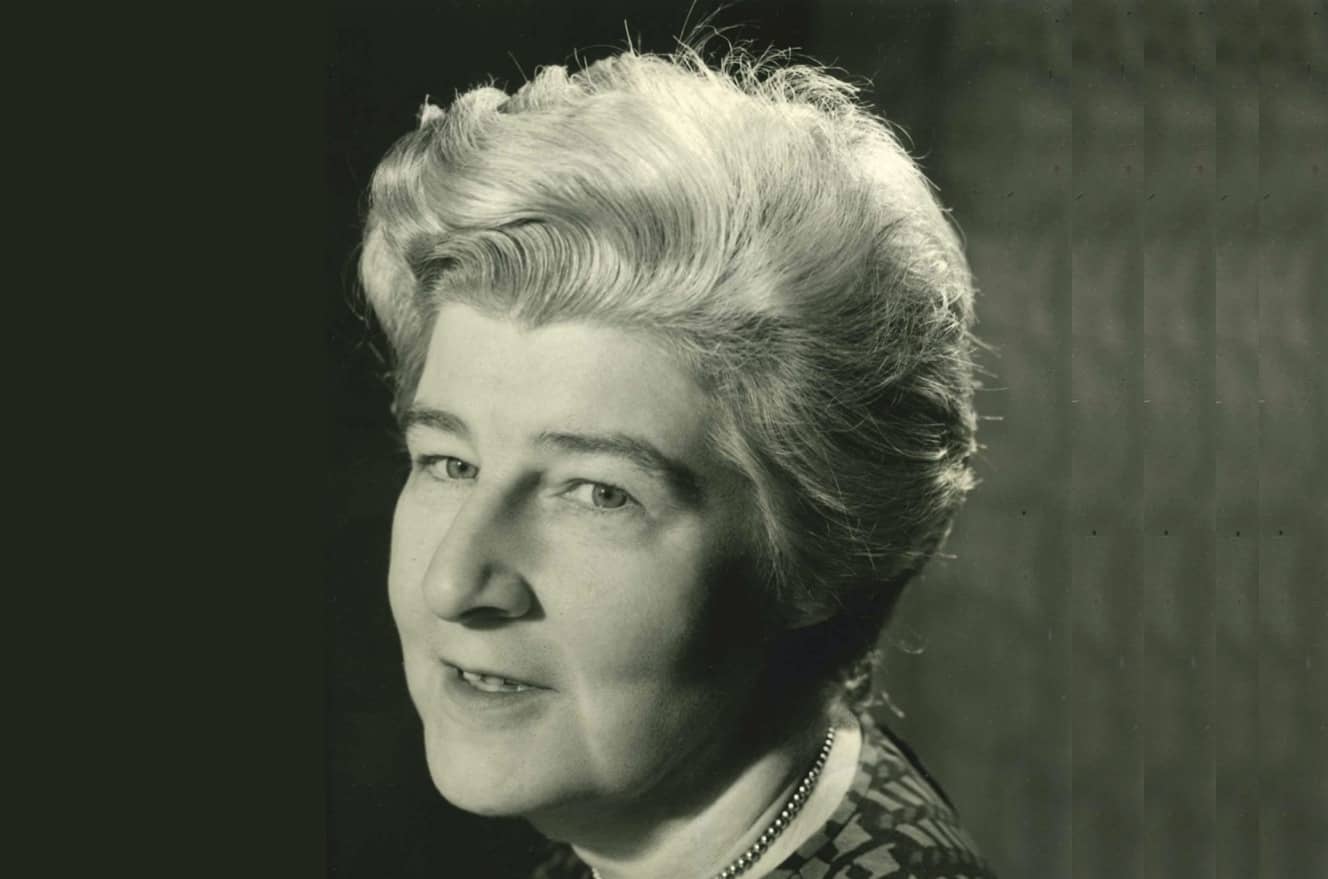
www.buildingsandcities.org/insights/news/pat-hillebrandt.html
Remembering Patricia Hillebrandt

Jim Meikle reflects on the recent passing of Pat Hillebrandt, whose professional life helped to establish the discipline of construction economics by researching the construction industry, its institutions and firms.
Dr Patricia (Pat) Hillebrandt died on 21 July 2022 at the age of 92. From the late 1950s to the late 1970s, with appointments at Costain, the construction contractor, the UK National Economic Development Office (NEDO) and the Bartlett School at University College London (UCL) she helped establish the emerging discipline of construction economics. Her Economic Theory and Construction (1974) is a seminal piece of work. From 1980 she worked largely as an independent consultant although with a long-standing academic association with the University of Reading.
Pat did her undergraduate economics part time at UCL and on graduation joined Plant Protection Ltd as an assistant economist. While there she started work on her PhD - on the economics of weedkillers. Her first contact with construction was in 1957, when she joined Costain.
I first met Pat in 1980 when we were both employed on a World Bank sponsored study of the Egyptian Construction Contracting Industry. I had previously worked in Egypt and other African countries but this was my first serious exposure to the economics of construction and the industry's role in national development countries. The rationale for the study was a concern about Egypt's construction industry capacity to address an ambitious development programme. I learned a lot and made a lifelong family friend.
Pat and I subsequently worked on a range of studies in the UK and Europe and, in 1992, another World Bank study, in Russia. That project, in the early Yeltsin days, was to look at the situation, and make recommendations for change, in the Housing and Construction Sector. Our recommendations were not welcomed by the Bank, whose view was that the answer to most, if not all, issues was privatisation. The problem, obvious to us, was that the construction 'assets' - enterprises and structures - to be privatised were in fact mostly liabilities. The enterprises were generally inefficient, with outdated equipment and producing poor output; the structures were often poorly constructed and inadequately maintained.
In 2005 she was awarded an honorary doctorate by the University of Reading and Construction Management and Economics published a Festschrift in her honour. For almost fifty years Pat advised, taught, consulted and wrote on the structure and performance of construction industries and firms. Pat would have admitted herself that she was less concerned with construction projects.
Pat was generous with her time and hospitality and will be missed by many, locally, nationally and throughout the world.
Latest Peer-Reviewed Journal Content
Built environment governance and professionalism: the end of laissez-faire (again)
S Foxell
Co-creating justice in housing energy transitions through energy living labs
D Ricci, C Leiwakabessy, S van Wieringen, P de Koning & T Konstantinou
HVAC characterisation of existing Canadian buildings for decarbonisation retrofit identification
J Adebisi & J J McArthur
Simulation and the building performance gap [editorial]
M Donn
Developing criteria for effective building-sector commitments in nationally determined contributions
P Graham, K McFarlane & M Taheri
Reimagining circularity: actions for optimising the use of existing buildings
R Lundgren, R Kyrö, S Toivonen & L Tähtinen
Effective interdisciplinary stakeholder engagement in net zero building design
S Vakeva-Baird, F Tahmasebi, JJ Williams & D Mumovic
Metrics for building component disassembly potential: a practical framework
H Järvelä, A Lehto, T Pirilä & M Kuittinen
The unfitness of dwellings: why spatial and conceptual boundaries matter
E Nisonen, D Milián Bernal & S Pelsmakers
Environmental variables and air quality: implications for planning and public health
H Itzhak-Ben-Shalom, T Saroglou, V Multanen, A Vanunu, A Karnieli, D Katoshevski, N Davidovitch & I A Meir
Exploring diverse drivers behind hybrid heating solutions
S Kilpeläinen, S Pelsmakers, R Castaño-Rosa & M-S Miettinen
Urban rooms and the expanded ecology of urban living labs
E Akbil & C Butterworth
Living with extreme heat: perceptions and experiences
L King & C Demski
A systemic decision-making model for energy retrofits
C Schünemann, M Dshemuchadse & S Scherbaum
Modelling site-specific outdoor temperature for buildings in urban environments
K Cebrat, J Narożny, M Baborska-Narożny & M Smektała
Understanding shading through home-use experience, measurement and modelling
M Baborska-Narożny, K Bandurski, & M Grudzińska
Building performance simulation for sensemaking in architectural pedagogy
M Bohm
Beyond the building: governance challenges in social housing retrofit
H Charles
Heat stress in social housing districts: tree cover–built form interaction
C Lopez-Ordoñez, E Garcia-Nevado, H Coch & M Morganti
An observational analysis of shade-related pedestrian activity
M Levenson, D Pearlmutter & O Aleksandrowicz
Learning to sail a building: a people-first approach to retrofit
B Bordass, R Pender, K Steele & A Graham
Market transformations: gas conversion as a blueprint for net zero retrofit
A Gillich
Resistance against zero-emission neighbourhood infrastructuring: key lessons from Norway
T Berker & R Woods
Megatrends and weak signals shaping future real estate
S Toivonen
A strategic niche management framework to scale deep energy retrofits
T H King & M Jemtrud
Generative AI: reconfiguring supervision and doctoral research
P Boyd & D Harding
Exploring interactions between shading and view using visual difference prediction
S Wasilewski & M Andersen
How urban green infrastructure contributes to carbon neutrality [briefing note]
R Hautamäki, L Kulmala, M Ariluoma & L Järvi
Implementing and operating net zero buildings in South Africa
R Terblanche, C May & J Steward
Quantifying inter-dwelling air exchanges during fan pressurisation tests
D Glew, F Thomas, D Miles-Shenton & J Parker
Western Asian and Northern African residential building stocks: archetype analysis
S Akin, A Eghbali, C Nwagwu & E Hertwich



Latest Commentaries
Building-Related Research: New Context, New Challenges
Raymond J. Cole (University of British Columbia) reflects on the key challenges raised in the 34 commissioned essays for Buildings & Cities 5th anniversary. Not only are key research issues identified, but the consequences of changing contexts for conducting research and tailoring its influence on society are highlighted as key areas of action.
Lessons from Disaster Recovery: Build Better Before
Mary C. Comerio (University of California, Berkeley) explains why disaster recovery must begin well before a disaster occurs. The goal is to reduce the potential for damage beforehand by making housing delivery (e.g. capabilities and the physical, technical and institutional infrastructures) both more resilient and more capable of building back after disasters.